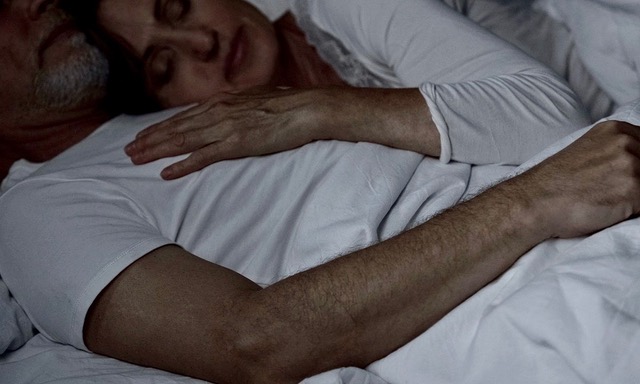A good night’s sleep is harder to come by as you age. Around 40 to 70 percent of older adults experience sleep problems, according to the National Institutes of Health (NIH).
Lack of sleep has been linked to a variety of chronic health problems, with heart disease and depression, obesity, kidney disease and dementia among them.
A recent study, which took place over ten years, reviewed three types of sleep issues and how each affected the risk of developing dementia. Specifically, the researchers looked at: 1) trouble falling asleep within 30 minutes (sleep initiation insomnia) 2) the use of sleep medication, and 3) difficulty falling back to sleep after waking (sleep-maintenance insomnia).
“My father has been experiencing chronic sleep disturbances since the COVID-19 pandemic began, and I was concerned how this would affect his cognition in the future,” lead investigator, Roger Wong, an Assistant Professor in the Department of Public Health and Preventative Medicine, SUNY Upstate Medical University, Syracuse, explained in a statement. “After reading the existing literature, I was surprised to see mixed findings on the sleep-dementia relationship, so I decided to investigate the topic.”People who reported having difficulty falling back to sleep after waking were actually less likely to develop dementia over the decade-long study.
One of the study’s results proved surprising: the team discovered that seniors who reported having difficulty falling back to sleep after waking were actually less likely to develop dementia over the course of the decade-long study.
“We expected sleep-initiation insomnia and sleep medication usage to increase dementia risk, but we were surprised to find sleep-maintenance insomnia decreased dementia risk,” said Wong.
Previous research had found that REM (rapid eye movement) sleep behavior, sleep deprivation (less than 5 hours of sleep) and the use of short-acting drugs called benzodiazepines were associated with cognitive decline. This research is different. It is the first to analyze how long-term sleep disturbances are associated with dementia risk in older adult samples that are representative of the U.S. population.
The results are based on data from a longitudinal study that surveyed a nationally representative sample of Medicare beneficiaries aged 65 years and older, the 2011-2020 National Health and Aging Trends Study (NHATS). Only seniors who were dementia-free at baseline in 2011 were included in the research.
Exactly why the risk of dementia was lower among those seniors with sleep-maintenance issues is still unknown. The researchers theorize that greater engagement in activities that preserve, or even increase one’s cognitive reserve, may lower a person’s risk for dementia.
There’s still much to learn about the connection. As Wong says, “Older adults are losing sleep over a wide variety of concerns. More research is needed to better understand its causes and manifestations and limit the long-term consequences.”
While research continues, the National Sleep Foundation offers these tips for better night’s sleep.
-
1. Go to sleep and wake up at the same time every day, including weekends.
2. Set a relaxing bedtime routine, such as listening to calming music, reading a book or taking a warm bath.
3. Make sure your bedroom is cool, quiet and dark.
4. Choose a mattress and pillows that are comfortable and supportive for your way of sleeping.
5. Finish eating meals at least 2-3 hours before bedtime.
6. Exercise regularly. A low-impact fitness program, like walking, swimming or yoga, is helpful for managing pain and stiffness and improving sleep.
The study is published in the American Journal of Preventive Medicine.





